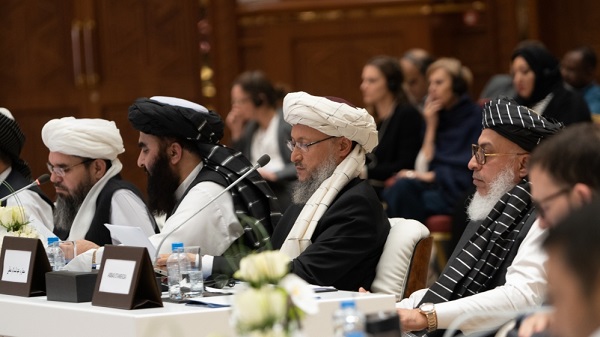Alwaght- While Afghanistan peace negotiations were planned to start with the presence of the government and the Taliban, there are reports that they were delayed, covering again the peace process of the country with clouds of uncertainly.
Prisoner release deal
As it appears, the demand for the release of Taliban prisoners from the government jails remains the key sticking point ahead of the peace talks.
From 5,000 Taliban prisoners the Afghanistan government promised to release 400 are labeled “dangerous” by Kabul authorities. President Ashraf Ghani tied their release to a green light given by Loya Jirga, an assembly offering consultation to the government in important matters.
Loya Jirga held its session and all of its members expressed their agreement with the release to push forward the peace negotiations. But Ghani not only set free a small number but also is dubious to release others. In an interview, he imposed the responsibility for the “grave consequences” of releasing the 400 most dangerous militants on the Western actors.
On the other side, Suhail Shahin, the spokesman to the political office of the Taliban, told Al-Quds Al-Arabi newspaper that the group will not proceed with the peace process it agreed upon with the Americans in late February in Doha, Qatar before the release of all of its prisoners held by Kabul government.
Taliban strategy: Talks along with battle on the ground
What puts the intra-Afghan dialogue into a state of ambiguity and uncertainty is the ongoing violence and Taliban attacks on government posts and troops.
According to officials in Kabul, since the start of the peace negotiations, the attacks and violence in the country increased several folds and this is a significant reason making the government hesitant to show willingness to push the peace talks with the Taliban.
Actually, the Taliban is adopting a policy of ‘battle and talk together”. This strategy was applied while negotiating with the US representative Zalmay Khalilzad since 2018. The militant group shows no signs it wants to forsake this policy while expressing interest in peace to secure concessions from the government. But this path is eroding the other groups’ interest to stand by the government for the dialogue. It, in fact, will question the possibility of any success to the efforts.
Dual-faced Western game in the negotiations
The West adopts a dual-faced approach in dealing with the Taliban condition for prisoner release before any further going ahead with peace efforts.
Just recently, Australia and France asked the Afghanistan government to not release 9 prisoners allegedly involved in killing of their troops. The names are also on the list of 400 whose release caused disagreement between Kabul and the Taliban and the government had to organize the Loya Jirga conference to make the final decision.
So, it can be said that the main obstacle holding back the negotiations is the Western countries which earlier pressed the government for prisoner release but now hamper the release process by asking the government to remain holding those accused of killing Western troops.
Many political and legal experts in Afghanistan argue that the Western countries, most importantly the US, which promoted negotiations and signed an agreement with the militant group have no right to block the prisoners release or deal double-faced with the peace process.
The High Council for National Reconciliation, led by Abdullah Abdullah, confirms that a number of Western sides opposed freedom of 9 Taliban prisoners with involvement in murder of Western nationals. The HCNR adds that some countries hold considerations about the release of prisoners and this is why the release of 400 controversial Taliban prisoners has run into delay and indecision.
The future of Afghanistan War
Although the peace process is scheduled to start in the coming days or weeks between the central government and the Taliban, there is no clear outlook for the end of violence and war in the Central Asian country that is under the US occupation for two decades. Observers of Afghanistan affairs assert that even if the Taliban enter negotiations, the militants will continue their war against the central government and also Western occupiers. This means that even if some moderates in the group strike a deal with the Ghani administration, the hardliners alone or with allies will continue their armed struggle.
At the same time, regional actors like China and Russia are severely engaged in competition against the US and the whole West through a proxy war in Afghanistan in line with the Taliban. Therefore, it is hard to sound upbeat about the realization of peace in the near future in the war-ravaged country.



























